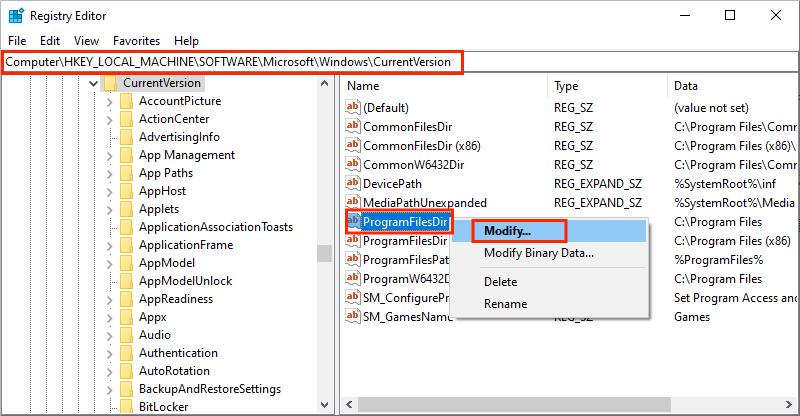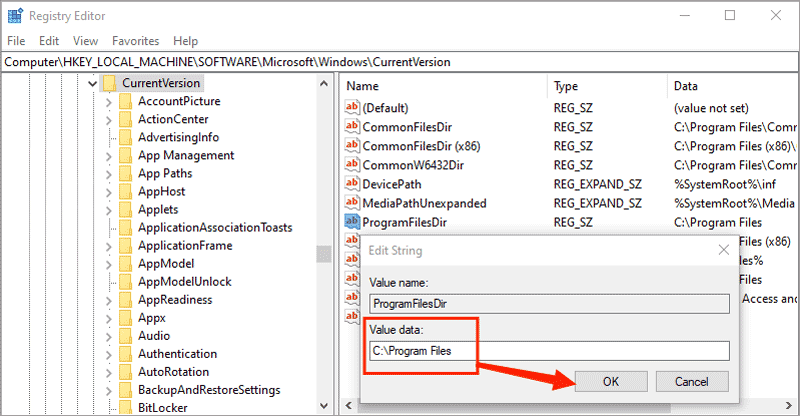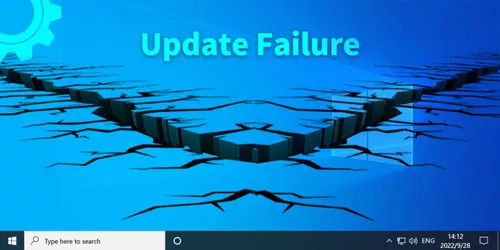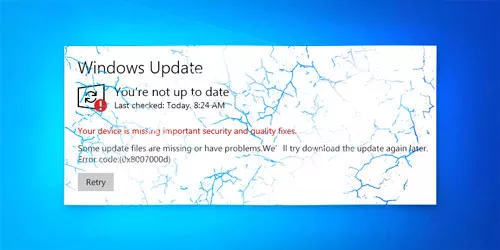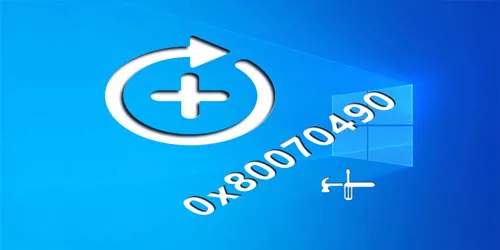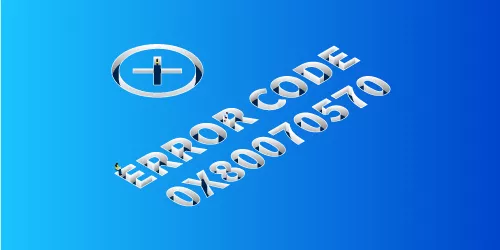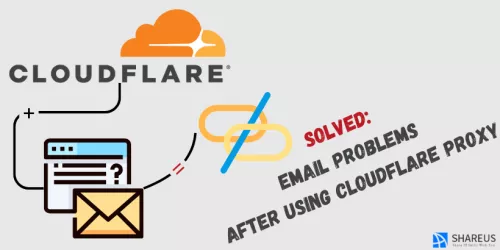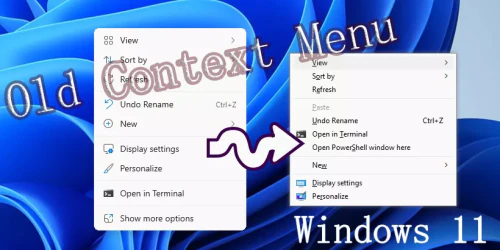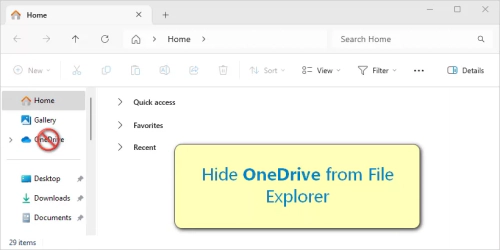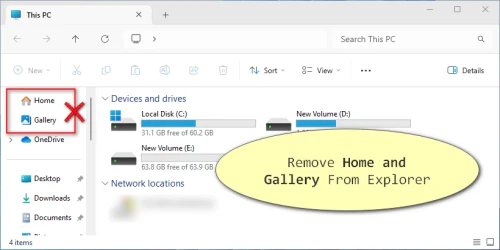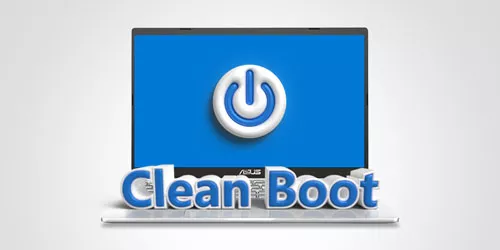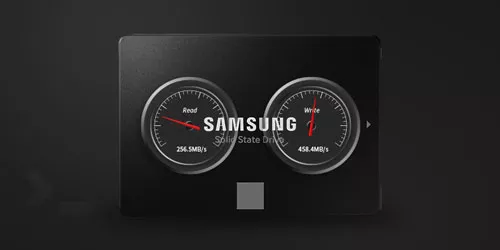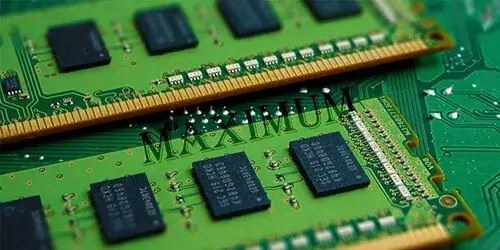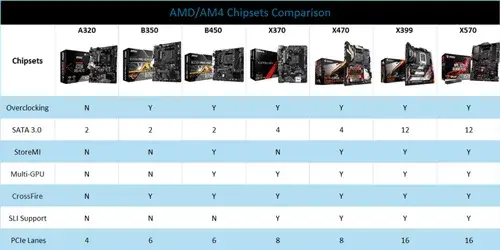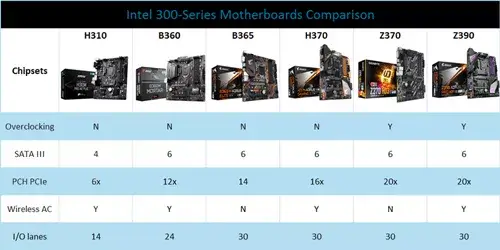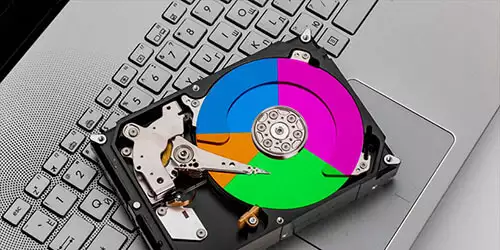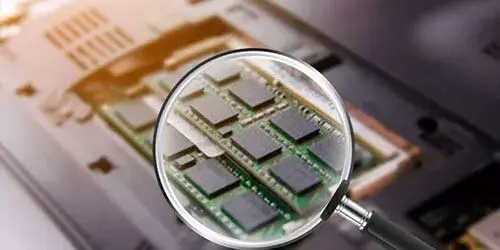Fix All Windows Update Errors (Common Approaches)
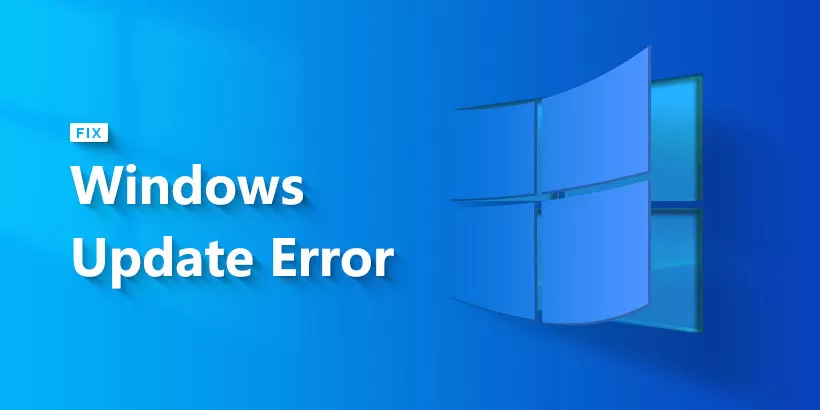
Have you ever encountered any Windows update error? Whatever how many times we try to restart the computer, the Windows update keeps failing, which seriously disturbs user experience. If you have met Windows update errors, such as 0x8007000D, 0x80D02002, 0x80070070, and so on, you can use the 7 useful and common approaches mentioned in this article to fix it!
- Method 1: Run Windows Update Troubleshooter
- Method 2: Temporarily Pause the Windows Update
- Method 3: Start the Windows Update Services
- Method 4: Delete SoftwareDistribution Folder Storage
- Method 5: Run the DISM and SFC Tools
- Method 6: Upgrade with the Media Creation Tool
- Method 7: Check the Windows Installation Path
Method 1: Run Windows Update Troubleshooter
Windows Update Troubleshooter tool can help you solve the problem when you receive an update error message.
Windows 10 steps: Press Win + I to open Settings window > Update & Security > Troubleshoot > Additional troubleshooters > Windows Update > Run the troubleshooter.
Windows 11 steps: Press Win + I > System > Troubleshoot > Other troubleshooters > Windows Update > Run.
Method 2: Temporarily Pause the Windows Update
Step 1: Press Win + R > Type “services.msc” > Click OK.
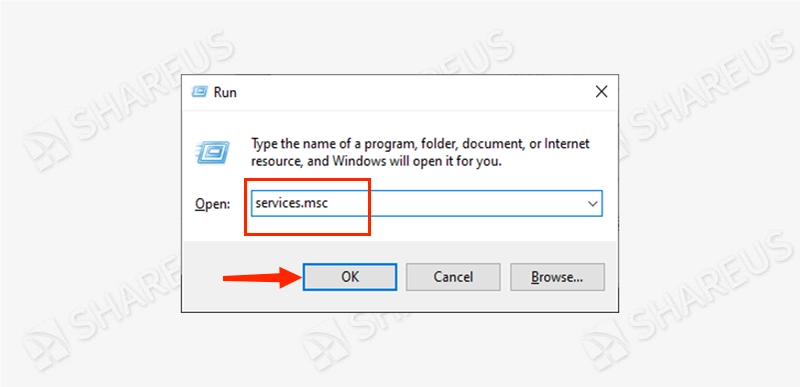
Step 2: Find and right-click the Windows Update service > Pause.
Step 3: Reboot your PC > Refollow step 1 and find Windows Update service > Start.
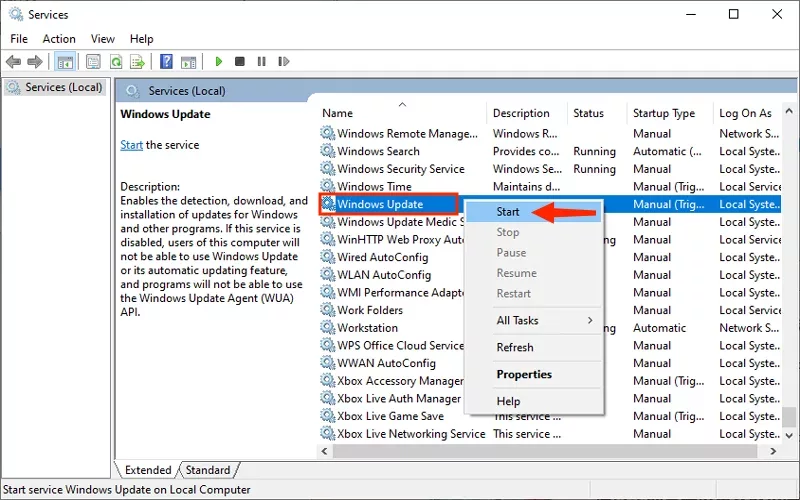
After that, try to see if you can run the Windows update successfully.
Method 3: Start the Windows Update Services
Step 1: Press Win + R > Type “services.msc” > Click OK.
Step 2: Find and right-click the below four services > Properties > Change Automatic in Startup type > Apply > OK.
• Windows Update
• Cryptographic Services
• Background Intelligent Transfer Service
• Windows Installer
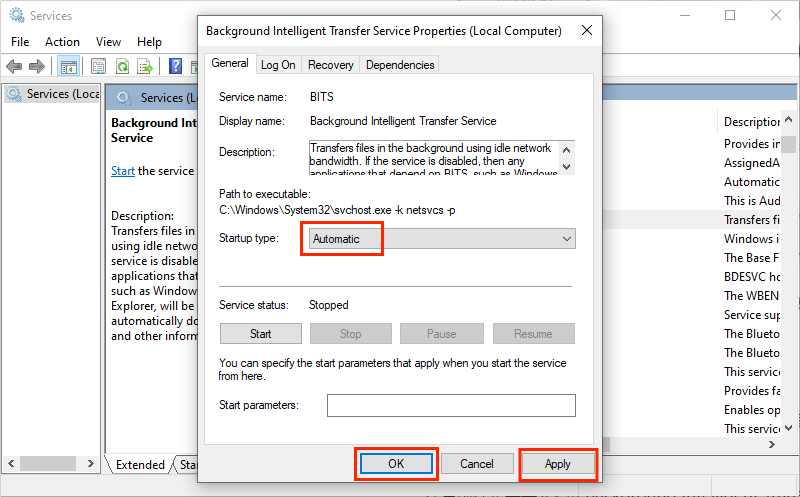
Method 4: Delete SoftwareDistribution Folder Storage
The SoftwareDistribution folder stores Windows update files and temporary files for downloading updates.
Step 1: Type services in the search bar, then click the Enter button.
Step 2: Find and right-click Windows Update service > Stop.
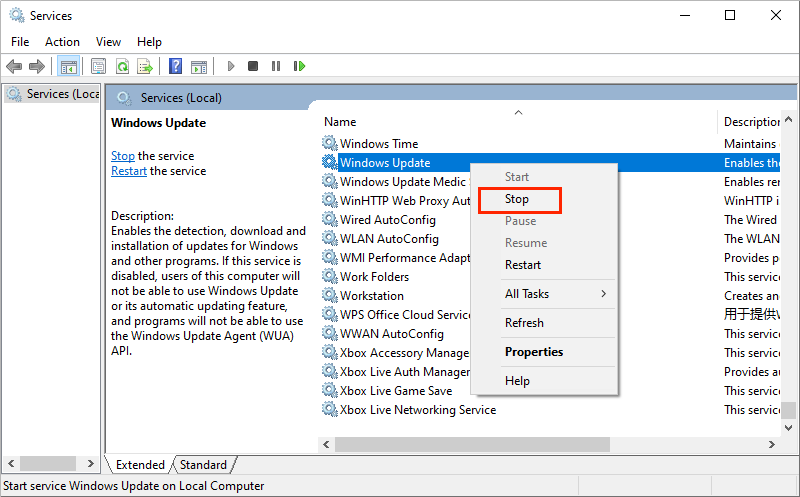
Step 3: Open File Explorer > Visit the path: C:\Windows\SoftwareDistribution
Step 4: Select and right-click the DataStore folder and Download folder > Delete.
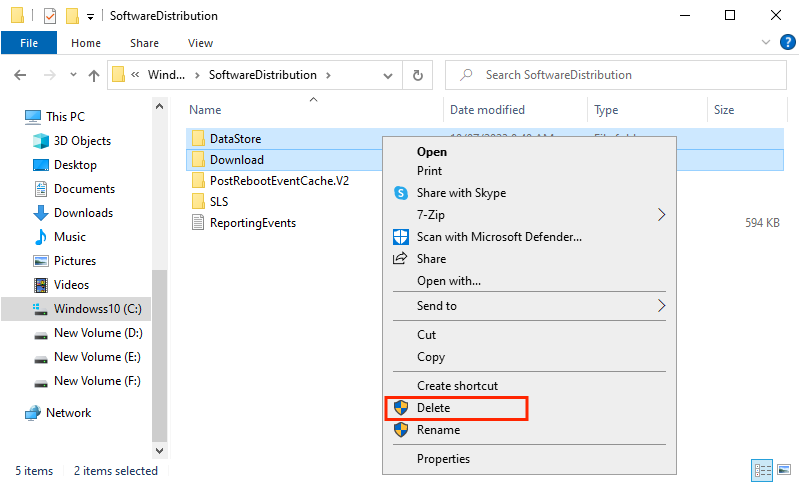
Step 5: Back to the Windows Update service > Start.
Method 5: Run the DISM and SFC Tools
Firstly, perform DISM to repair Windows images, then run SFC to scan and fix corrupted system files. Here are the steps:
Step 1: Right-click the Start menu > Windows PowerShell (Admin).
Step 2: Type the following commands in order, then hit the Enter button after each command.
dism.exe /online /Cleanup-image /Restorehealth
sfc /scannow
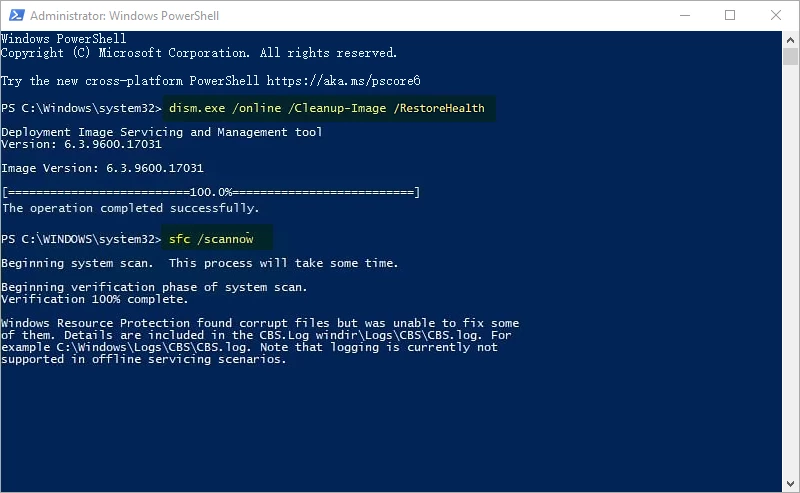
When the two commands are finished, reboot your computer and update again to check if the Windows update error has been fixed.
Method 6: Upgrade with the Media Creation Tool
A Media creation tool can be used to upgrade the PC or create an installation medium to fix Windows update errors.
Step 1: Visit the Microsoft website > Download tool now.
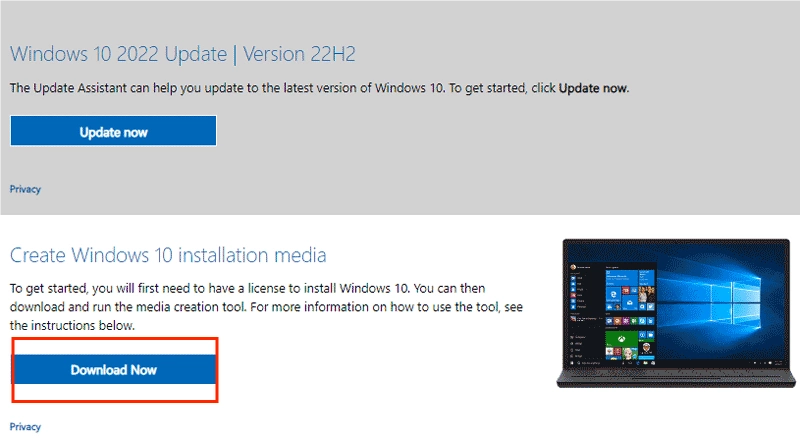
Step 2: When installed, choose Upgrade this PC now and follow the setup instructions.
Method 7: Check the Windows Installation Path
If you have changed the default installation path to another disk, it may cause the Windows update to fail. Therefore, you can change the default path.
Step 1: Press Win + R > type regedit and click OK.
Step 2: Browse to the following route:
Computer\HKEY_LOCAL_MACHINE\SOFTWARE\Microsoft\Windows\CurrentVersion
Step 3: Find and right-click ProgramFilesDir > Modify… > Change the Value data to C:\Program Files, then click OK.
